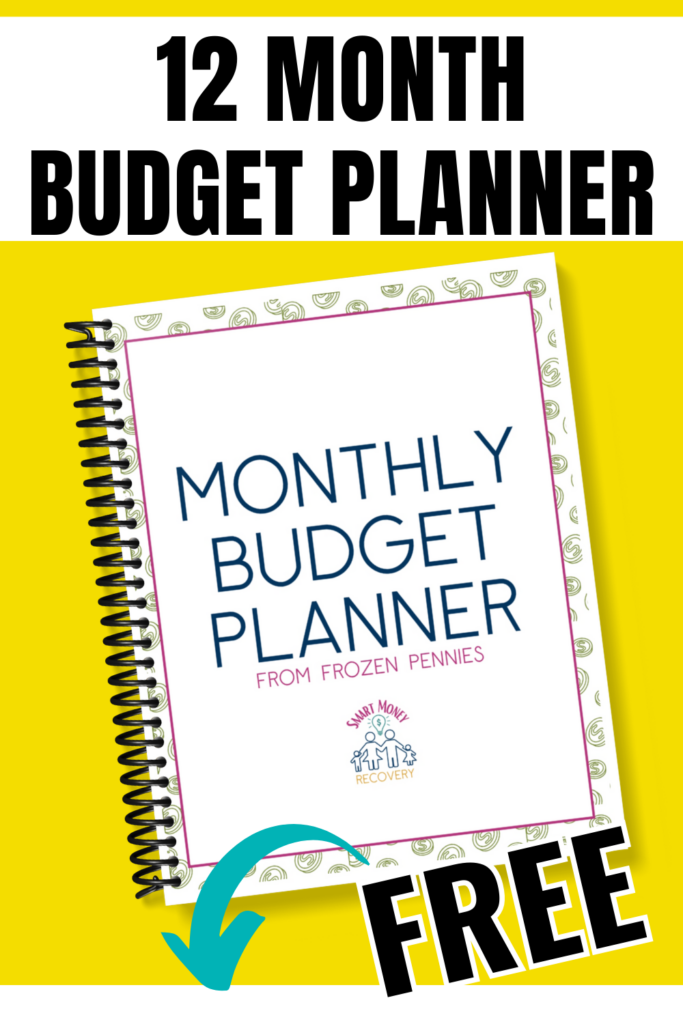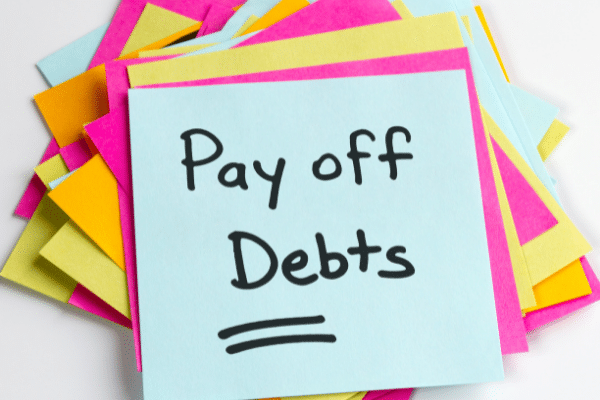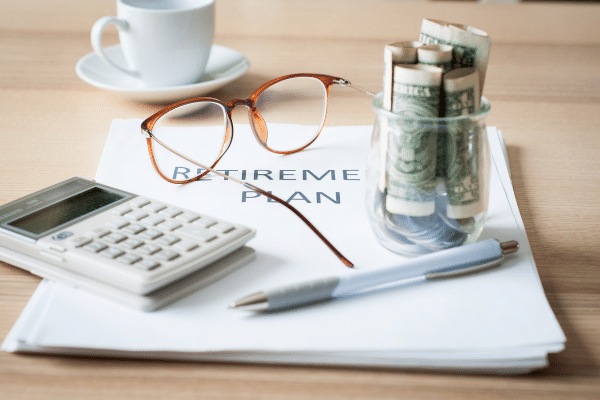You’re doing great with your budgeting but have some extra money left over. What do you do with leftover money when budgeting?
You’ve done the hard work of creating a zero-based budget. You know exactly where your money is going and how much is left over at the end of every month. Sometimes, you might find some extra after all bills and expenses have been paid.
What should you do with that extra cash? Should you save it or spend it on something fun? Deciding can be challenging when you don’t have a plan for this “extra” money.
If you’re like most families, you have to budget your money carefully to make it stretch each month. But what do you do when you have leftover budget money at the end of the month? Here are a few ideas for how to use that extra cash. Making the best financial decisions for your financial health is essential in today’s economy.
Here are a few ideas:
- Building an emergency fund
- Paying off debts for debt freedom
- Saving for retirement/investments
- Saving for other financial goals
- Fun

Build an Emergency Fund
It’s a good idea to have an emergency cash fund. The amount you save should cover three-to-six months of living expenses in case of job loss, illness, etc.
You should have a rainy-day fund to help protect yourself against unexpected expenses.
What amount of emergency cash reserve makes sense for your family? You may want to aim for three months or more of expenses unless you have a high income and no debt. In that case, six months is a reasonable goal.
To determine your monthly expenses, add everything you pay for and NEED each month.
This means home, car, insurance, electricity, food, and heat. The things not included would be cable, entertainment streaming services, eating out, and other activities based on fun.

What types of things are considered emergencies?
Cars need repairs. Kids get sick. Unexpected bills come up. Emergencies are occurrences you can’t predict but could happen to anyone any time.
An emergency fund gives you the financial safety to handle emergencies without taking out a loan or going into debt. You should have a separate account in case of emergencies and not use money for other things like an emergency fund to purchase fun or entertainment.
Not saving ahead of time means you might be forced to take out a loan for emergencies if you have an unexpected expense, which can lead to debt.
How can you build an emergency fund?
Look for ways to cut spending so you have more money each month. Consider downsizing your living space or eliminating cable television. Or, increase the amount of money in your bank account by working a side hustle or increasing income from your job.

Paying Off Debts for Debt Freedom
If you have credit card debt or other high-interest debt, it may be a great idea to use extra money to pay off that debt as quickly as possible. This can save you hundreds or thousands of dollars in interest charges and help you break the cycle of credit card dependence.
Being debt-free means no more minimum payments or late fees from credit cards. Not having those debts also takes a massive load off your mind.
It also means you have zero loans for things like cars, campers, furniture, or appliances, personal loans to institutions and family members, and a nice big one….student loan debt.
Paying off all debts means that you don’t owe anyone anything.
You can save more money without spending it on interest fees. You’ll feel more financially secure and have many options for how to spend your money.
Can adding extra payments help to get out of debt faster?
YES. If you have a balance of $5,000 on a credit card with an 18% APR and pay the minimum payment every month, it will take you approximately 35 years to pay off your debt and cost you about $8,130 in interest charges. If you double up your monthly payments to $100 per month, however, you can pay off your debt in about 23 years and save $4,270.

Make Extra Payments on Your Mortgage
If you have an extra $100 per month, paying down your mortgage early by just one year greatly impacts the amount of interest you’ll pay over the life of the loan. The more money you can put toward your monthly mortgage, the more you can reduce your principal and pay off your home sooner.
You can pay off your home years sooner, which means more money in your pocket and less interest paid on a mortgage. You’ll also have a greater sense of security knowing you own your home free and clear.
But, if you decide to pay off your mortgage, you can’t use the money you used for your mortgage payment elsewhere—no need to worry about your credit score. The paid-off house will bring waves of security to your life.
What is the best way to find money to put towards your mortgage?
In addition to using extra cash each month to pay off your mortgage early, you might consider a few more suggestions.
- Sell stuff you don’t need.
- Cut down on going out to eat.
- Skip the daily coffee run and make it at home.
- Look for ways to cut expenses or increase income so that more cash is available monthly to add to the principle.

Invest in Retirement Savings or Other Investments
You might not be able to max out your retirement fund every year, but it’s free money if you’re eligible for a 401(k) matching program at work. It’s also a good idea to max out an IRA account if you qualify for one.
Take advantage of any employer match available for your 401(k) account. Or, look into opening an individual retirement account, IRA.
What are the advantages of investing in retirement?
You can contribute tax-free money every year and let it grow over time. You may also be able to deduct contributions from your taxable income, so you get a tax break and save some money for retirement at the same time.
What are some disadvantages of investing in retirement?
You’ll eventually have to pay taxes on your withdrawals from a retirement account. Also, you may be unable to use that money until you’re 59 1/2 years old – or older if your account allows it.
Consider investing in taxable accounts, like stocks or mutual funds. You can use that money at any time but will likely have to pay capital gains on some of the appreciation of your investment.

How do you start investing as a beginner?
Start with a simple allocation strategy and keep your fees as low as possible. Then, find an investment matching your goals and risk tolerance.
An index fund will show you how the market is generally doing.
Keep up with your accounts and review them regularly to see any changes or trends. Look out for fees affecting your savings and adjust to meet your needs better.
How do you invest in real estate as a retirement plan?
Invest in real estate if you want to live off your income and appreciate it over time.
You can build sustainable wealth if you invest for the long haul and reinvest your dividends and rent. However, it’s essential to understand that this is a business – not just an investment – so take the time to learn as much as possible before buying your first property.
To get started, you might start looking for undervalued properties and rent them out to tenants. Then, once you’ve learned more about how the market works and how much your home is really worth, you can begin investing in fixer-uppers and flipping houses for a profit.
Invest in a small business
Many opportunities for small businesses today aren’t limited to brick-and-mortar storefronts. Consider the hobbies you enjoy and put some spare money to good use by turning that into a small business.

Saving for Other Financial Goals
Savings goals such as for kids, college funds, vacation homes (and other “big-ticket” items) are an excellent way to save money. It can seem like a daunting task at first, but it’s important to start somewhere.
Don’t put off saving for your child’s college education. Even a tiny amount can go a long way toward paying for a portion of your child’s tuition. Better yet, if you start young enough and make the savings automatic, you might even be able to avoid taking out student loans.
It is always best to have a plan. Saving for your child’s college tuition should be part of that plan. You will likely need to save regularly to have enough money by the time your child is ready to go.
Saving for a new car is another option.
First, calculate how much money you can put aside each month. Then, set up a savings account strictly for this purpose and automatically transfer your checking account every month.
Finally, once you have enough money in your car savings fund, shop for a great deal on a new car!
When you have a plan, budgeting and saving money is much easier. It’s also easier to see how different expenses impact your finances.

Use the extra cash for things like a vacation house.
Consider investing in a vacation house. While it might seem frivolous at first glance, the right second home can actually help you make more money.
For example, you buy a cabin or summer home near your primary residence and book several weekends each year. You can then rent out your second home when you’re not using it to offset the cost of owning the property.
Or, maybe you want to live there full-time. If so, consider renting out the place you already own when you aren’t using it!
Owning a second home is an excellent way to protect your long-term financial future. This is because real estate tends to be one of the most profitable, tax-advantaged investments you can own.

Spend Some Fun Money
Spending money on entertainment is an entirely valid choice, especially if you don’t have many other financial obligations. When you budget for fun, it’s easy to feel guilty or irresponsible, but no rules say you can’t enjoy yourself! You can even set aside some of your money for fun before you pay any other bills or expenses if you need to; use cash for fun money only.
For many people, spending money on traveling is a great way to spend fun money! Vacations are quick and easy ways to enjoy yourself without feeling like you’re shorting yourself in other areas.
The truth is that there are countless ways to spend your hard-earned cash. The key is finding the things that make you happy. As long as you’re not hurting anyone else by spending your money, it’s all good fun.
What are some benefits of having fun money?
Having fun money allows you to do whatever makes you happy without feeling bad about it. It also helps you live in the moment and enjoy yourself more than if you were just focused on money.
Try to save for fun every week for something to look forward to. If there’s no way you can save up enough in time, you might consider taking out a small loan or credit card advance with the lowest possible interest rate.
The bottom line is that there are many perfectly reasonable ways to spend your extra money after paying all your obligations. It’s easy to get caught up in the idea that you must do one thing with the extra cash every month because that’s what you’re “supposed” to do. But there’s no reason to feel guilty about not saving every last dollar.
You have to decide what makes you happy and spend your money on that.
You have a few different options regarding what you do with your extra cash. But, no matter which option you choose, make sure you put that money to work for you.
Invest it in yourself by taking a class or learning a new skill. Use it to pay down debt and eliminate those pesky interest payments. Or, sock it away in savings to cover unexpected costs down the road. Whatever you decide, remember that this is your chance to really boost your financial security – and remember, personal finance is personal, so make the decisions based on you.
Final Thoughts on What to Do With Leftover Money When Budgeting
Having a budget is the best way to control your financial situation. Having some leftover money in your budget is a great benefit to this. It can be used as an easy way to speed up debt repayment or to put aside some emergency savings for those unexpected bills. Plus, you can be satisfied with everything working with your finances as planned!

